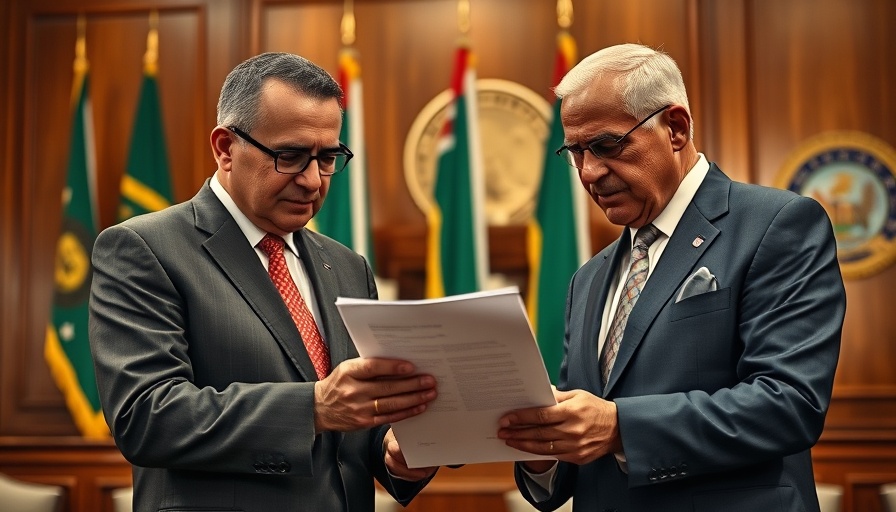
A Legacy of Liberation: Reflecting on Southern Africa’s Struggles
On August 2, 2025, prominent leaders from six of Southern Africa’s liberation movements convened for the Liberation Movements Summit in Kempton Park, South Africa. This gathering celebrated their historical struggles against colonial oppression and showcased their shared identities; from the African National Congress (ANC) to Mozambique's FRELIMO, these organizations were once symbols of hope.
From Revolutionaries to Rulers: The Paradox of Power
However, a troubling paradox marks their legacy: the same movements that once championed freedom now lead governments defined by corruption, nepotism, and unfulfilled promises. Initially seen as liberators, they have faltered, turning inward and prioritizing power consolidation over rampant inequality in their respective nations.
The ANC, once the Apex of anti-apartheid resistance, currently grapples with public discontent. Under Cyril Ramaphosa’s leadership, the party faces allegations of corruption that have significantly tainted its credibility. Though Ramaphosa’s administration vowed to tackle the malaise of corruption, the persistence of scandals—such as state capture—exemplifies a decline in ethics and effectiveness.
Economic Downturn: The Burden Borne by Citizens
As economic challenges escalate, millions of South Africans continue to live in poverty, wrestling with high unemployment rates. Long gone are the hopes of equity and prosperity, replaced by feelings of betrayal. The electorate, once united in their support, now feels disillusioned, as the leadership has strayed far from its founding ideals. The patronage system within the ANC adds fuel to this fire, creating an environment ripe for nepotism, undermining competence in governance.
MPLA’s Transformation from Liberation to Suppression
Similarly, Angola's MPLA, under João Lourenço, has shifted from a revolutionary hero to an authoritarian regime, where dissent is increasingly silenced. Initial promises of reform were overshadowed by concerted efforts to clamp down on critical voices and media freedom. This shift from liberation to repression has left many questioning the very tenets of democracy those leaders once espoused.
Future Predictions: A Call for Renewal
Looking forward, the need for rejuvenation and reform within these parties is clear. To regain the confidence of their citizens, they must address corruption head-on, invest in inclusive economic policies, and demonstrate a commitment to genuine democratic practices. Grassroots movements and civil societies play a crucial role in holding these parties accountable, urging them to return to their foundational commitments of justice and equality.
Breaking the Cycle: Lessons in Leadership and Governance
This prolonged cycle of disillusionment serves as a stark reminder of the need for transparency and good governance in the region. The liberation movements must pivot from being power-centric to fostering inclusive policies that elevate the voices of ordinary citizens and stand against corruption. As empowered citizenry, there has never been a more critical time for the electorate to advocate for their rights and demand accountability from their leaders.
The Intersection of Politics and Technology: A New Path Forward
Moreover, considering the technological advancements available, it is imperative for Southern Africa to leverage digital transformation and blockchain technology to foster transparent governance and citizen engagement. Innovative solutions such as e-governance could play a pivotal role in reducing corruption and enhancing civic participation, aiding in bridging the aspirations of the past with the transformative needs of the future.
Conclusion: A Legacy Reimagined
In conclusion, the legacy of liberation in Southern Africa invites a critical reexamination of the relationship between leadership and the people. Can these historical movements invigorate their founding principles and lead by example? Only time and committed action will tell as they navigate the complex challenges to reclaim the trust and future of their nations.
 Add Row
Add Row  Add
Add 




Write A Comment